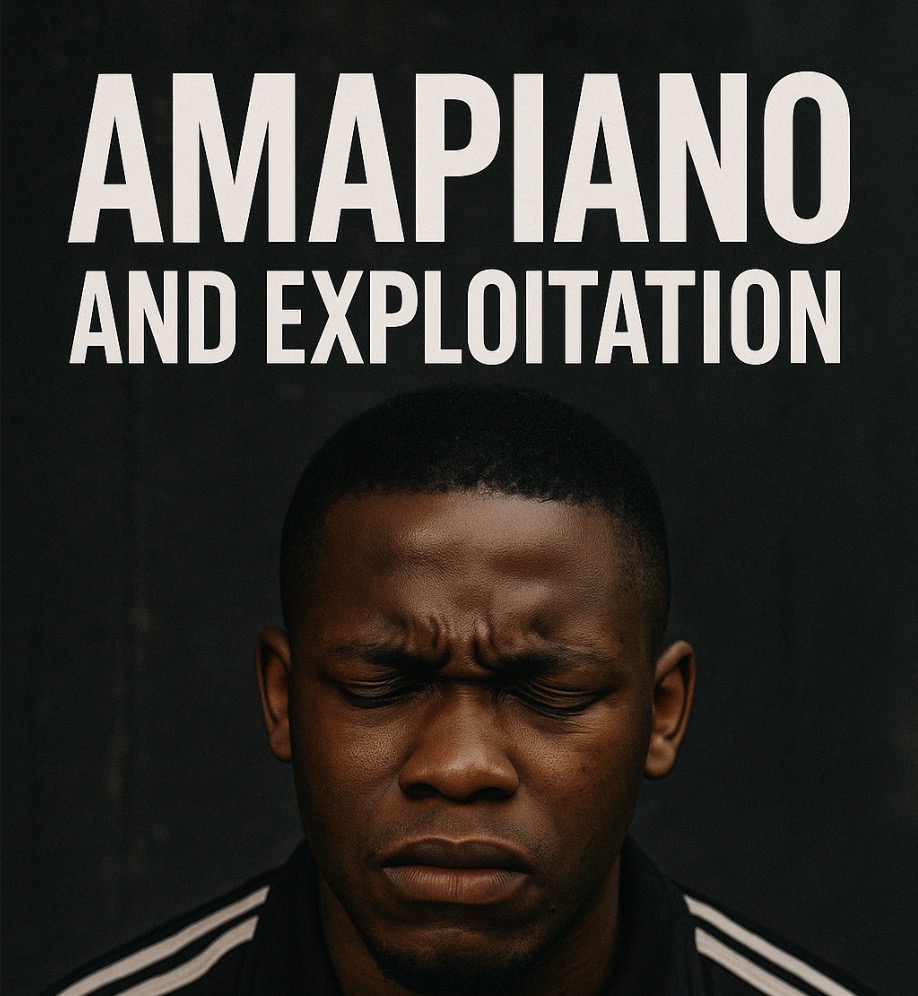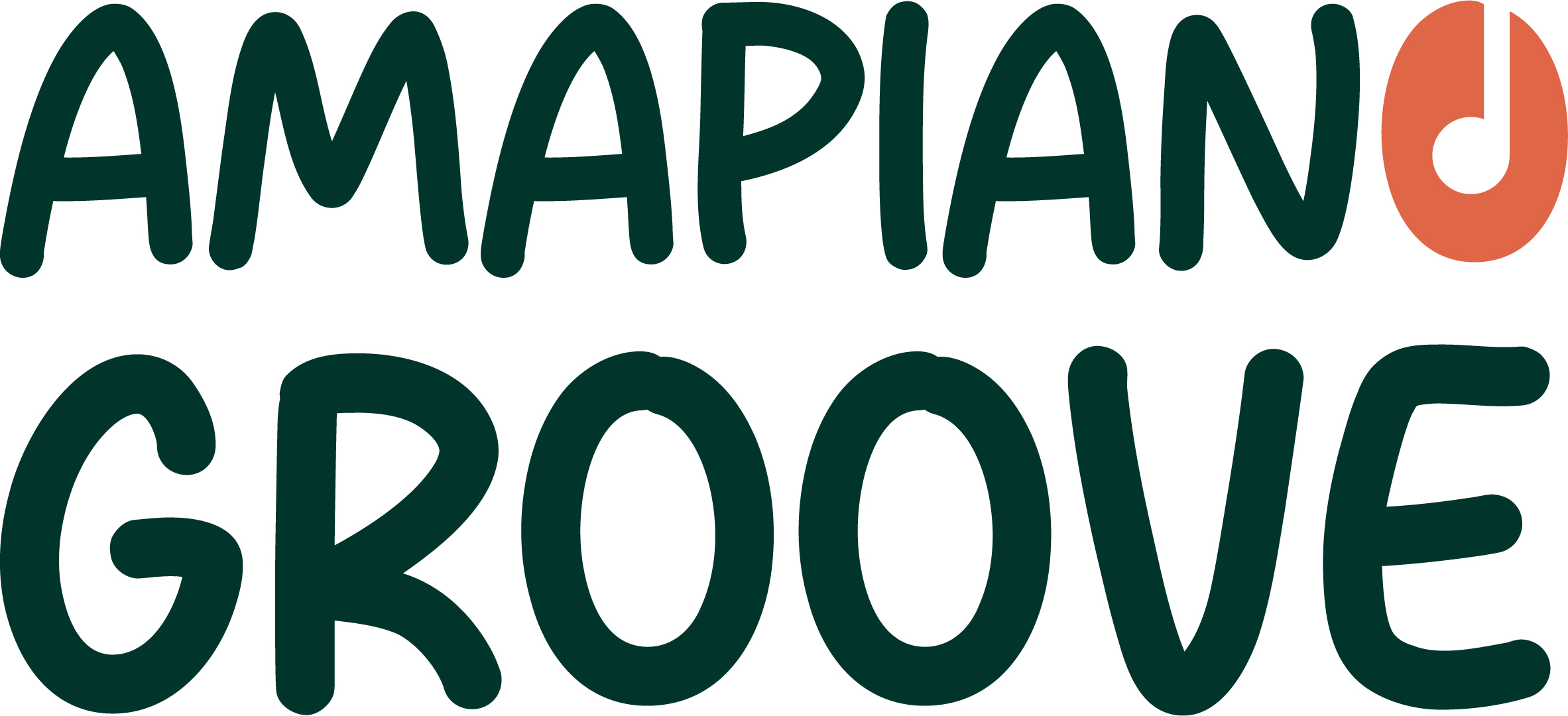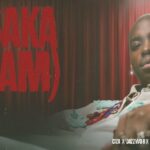
The glitz of Amapiano’s stars often masks behind-the-scenes struggles with exploitation.
Amapiano’s meteoric rise from the townships of South Africa to global dance floors has painted a picture of endless hits, flashy performances, and overnight stars. But behind the pulsing beats and viral dance moves lies a music industry eating its young alive. This week, Amapiano vocalist PCee (Khulekani Nxumalo) ripped the lid off that ugly reality in a fiery Instagram Live that has sent shockwaves through the scene. In a brutally honest outpouring, PCee revealed that despite dominating charts with multiple hit songs, he hasn’t seen “a cent” from his music.
He accused unnamed industry players of stealing his signature moves, sabotaging his releases, and reducing him to a footnote in a genre he helped build.
The rant has not only fans in an uproar – it’s put a spotlight on superstar DJ Uncle Waffles as the possible target of his ire, reopened old wounds from Oph Sage’s 18-million-streams-with-zero-gigs saga, and ignited a firestorm about systemic exploitation in South African music.
Buckle up: this opinion piece pulls no punches in examining the rot PCee has exposed at the heart of Amapiano.
PCee Breaks His Silence on Being “Used and Unpaid”
PCee’s Instagram Live on April 14 was nothing short of explosive. Visibly frustrated and emotional, the “Kilimanjaro” hitmaker unleashed a litany of grievances that many suspect have been building up for months. “The songs are very big, but I have never gotten a cent from them. I have never even gotten one rand from those things,” he vented, referring to the smash hits he’s been a part of.
This is not an up-and-coming artist with a minor credit or two – this is the vocalist behind some of Amapiano’s biggest anthems basically admitting he’s broke despite his success.
How is that even possible?
The disbelief quickly turned to anger as PCee detailed how those pulling the strings ensure only the “chosen” star reaps the rewards:
“Instead, he/she must be the only big artist in SA, and then the rest follows… we have sell-out artists… we were together in this whole thing… but I am tired,” he said, his voice trembling.
What exactly had pushed PCee to this breaking point?
According to him, it’s a two-pronged betrayal. First, he suggests his record label has not paid him a single cent for the music that’s topping charts.
Imagine creating a hit that’s blasted at every party, only to have zero in your bank account to show for it – that’s PCee’s reality, if his claims are true.
Second, he called out an insidious form of gatekeeping: an Amapiano blog/page (which he didn’t name) that he says is actively sabotaging him.
PCee described a scenario where whenever he’s about to release new music, “they… create unnecessary traffic” by pushing someone else’s release at the same time.
In his words, “they want to create unnecessary traffic… it’s really hurting my feelings”.
This suggests a deliberate effort to drown out his work – a stunning allegation that an influential gatekeeper in the scene is playing kingmaker, deciding who gets shine and who doesn’t.
And then there’s the creative theft. PCee didn’t hold back on accusing certain fellow artists of lifting his performance style and passing it off as their own. “You stole a movement from us… You present it to people like it’s your own movement. Hell no, you stole it from me,” he shouted, clearly fed up with seeing others copy his dance moves and crowd engagement tricks without credit.
For an artist, that kind of plagiarism cuts deep – it’s not just about money, it’s about identity. PCee’s anger at having his artistic identity co-opted was palpable. By the end of his Live, he dropped a bombshell that encapsulates just how disillusioned he’s become: PCee announced he is likely quitting Amapiano altogether. He plans to drop one last Piano EP and then “delete everything” and pivot to R&B, possibly trying his luck in the U.S.
Imagine that: one of Amapiano’s rising voices so fed up that he’d rather start from scratch in another genre than stick around. It’s both a tragedy and a damning indictment of the industry’s state. When the people who make the music feel forced to walk away, something is very, very wrong.
Superstar DJs Under Fire: Is Uncle Waffles the Unspoken Target?
PCee never dropped names in his rant – but the internet detectives didn’t need much to connect the dots. Almost immediately, fans began speculating that his pointed comments were aimed at none other than Uncle Waffles, the wildly popular Amapiano DJ/producer who has been PCee’s frequent collaborator.
Waffles (real name Lungelihle Zwane) is Amapiano’s poster child right now: she’s the “it-girl” DJ who went from viral Instagram clips to Coachella stages and Drake co-signs in a blink.
Crucially, PCee and Uncle Waffles have worked together on big songs – including “Wadibusa,” a banger that racked up millions of streams.
So when PCee railed about “he/she must be the only big artist in SA” and someone stealing his movement, fans immediately thought of Waffles, the biggest breakout star around him. It didn’t help Waffles’ case that PCee’s grievances echo a pattern that fans have already associated with her.
Whispers about Uncle Waffles not properly crediting or compensating collaborators have been swirling since last year (more on that in a moment). So on social media, it was open season on Waffles’ reputation. Several netizens outright accused Uncle Waffles of exploitation, even without PCee saying her name.
Under a repost of PCee’s Live, one commenter said, “I knew one day he will talk. Someone once said Uncle Waffles doesn’t pay artist she working with.
Another chimed in: “Uncle Waffles doesn’t know how to produce yet people who worked hard are Pcee and Justin99”, implying she’s taking credit for tracks that producers like PCee and Justin99 actually crafted. These are scathing allegations – essentially painting Waffles as a glory hog who rides on others’ talent.
By April 15, the chatter got so loud that PCee felt compelled to go live again, this time to pour cold water on the Waffles theory. He insisted he wasn’t referring to Uncle Waffles at all in his rant.
Perhaps he genuinely wasn’t – or perhaps the powers that be pressed him to put out that fire before it torched the whole house. We don’t know. But by then, the court of public opinion was already in session.
PCee’s denial did little to stop the “Is Uncle Waffles a leech?” debates raging across Twitter, TikTok and YouTube.
Notably, Uncle Waffles herself has subtly addressed the drama. According to entertainment updates, she “broke her silence” and denied using PCee without giving due credit or royalties.
It’s classic damage control: the superstar DJ assuring everyone that no, I’m not exploiting anyone. Yet, the very fact that Waffles – a darling of the genre – had to defend herself shows how deep the suspicions run. True or not, enough people believe that big-name DJs might be short-changing their collaborators. Uncle Waffles might be the lightning rod of the moment, but this issue is bigger than one person. PCee’s outburst has simply underscored a long-simmering resentment in Amapiano: the sense that behind every DJ superstar riding the wave, there’s a trail of vocalists and producers feeling cheated and sidelined. And if even the genre’s golden girl isn’t immune to accusations of exploitation, it begs the question – who can upcoming artists trust in this game?
History Repeating: 18 Million Streams, 0 Gigs – The Oph Sage Saga
PCee is not the first to blow the whistle on this exploitative ecosystem. Just last year, another Amapiano artist’s cry for help lit up social media – and yes, Uncle Waffles was at the center of that storm too.
Enter Ophile “Oph” Sage, a vocalist who collaborated with Waffles on the hit track “Wadibusa.” In May 2024, Oph Sage posted a TikTok with a telling caption: “POV: your song has over 18 million streams, but you got 0 gigs.”
Think about that: the song was a certified hit, yet the guy singing it wasn’t getting booked to perform. All the clout and money was seemingly flowing in one direction – and it wasn’t towards Oph Sage. Fans immediately read between the lines: Wadibusa was Uncle Waffles’ track (she’s the marquee name on it), and if Oph Sage was complaining about no gigs, it implied Waffles might not be putting him on or sharing the shine.
The online peanut gallery didn’t hold back. They pointed fingers straight at Uncle Waffles, accusing her of exactly what we’re hearing again now – riding a vocalist’s talent to elevate her own career, without returning the favor.
The situation reached a boiling point when MacG, the outspoken host of the popular “Podcast and Chill”, weighed in. MacG is known for calling out industry BS, and he tore into Uncle Waffles like a man on a mission.
On an episode in November, he straight-up called Waffles “a leech”
“That girl has one of the biggest piano songs in the world… but she can’t even put on the guy who is the vocalist in the song,” MacG ranted, referring to Oph Sage.
He pointed out how Uncle Waffles was touring the globe, raking in fame and presumably cash, while the guy who actually “makes the song” is left performing in taverns back home.
“This is sad, dog, this is unfair,” MacG lamented, in a rare moment of on-air indignation that resonated with many.
His co-host Sol Phenduka agreed, arguing that Waffles should have at minimum included Sage in her music video or brought him on stage to perform the song, which costs her nothing but could change his life.
“She wants to eat alone – she’s selfish as f**,”* one disgusted fan tweeted at the time, summing up the public sentiment that MacG had vocalized.
To be fair, Oph Sage later came out to clarify that he wasn’t accusing Uncle Waffles directly and that the “leech” narrative had run away from the truth.
Damage control once again – perhaps he feared burning bridges or facing industry backlash for naming and shaming a powerhouse DJ.
But by the time he tried to reel it in, the court of public opinion had made up its mind. The Uncle Waffles backlash was real, and it exposed a fault line: many fans and fellow artists already suspected this kind of exploitation was happening, and the Oph Sage incident simply confirmed their worst fears.
When PCee went on his tirade this week, those memories came flooding right back. History seemed to be repeating itself: another artist behind a huge hit, coming forward to say “I got nothing for it”. The parallels are hard to ignore – and frankly, infuriating.
How many times must we hear this story before something changes?
Gatekeepers, Ghost Producers, and Greed: Systemic Exploitation in SA Music
At this point, it’s clear we’re not dealing with isolated cases or one “bad apple” artist. There’s a systemic rot in the South African music industry – especially in the Amapiano scene – that enables and perpetuates these exploitation cycles.
PCee’s revelations, Oph Sage’s plight, Sir Trill’s complaints, Lady Du’s management battles – they’re all symptoms of a deeper disease.
Let’s break down the common threads in these horror stories of hitmakers left high and dry:
Meager Streaming Royalties (Often Snatched by Others): In the streaming era, having millions of streams should mean some payout – but often it doesn’t for featured artists.
Streaming platforms pay notoriously low rates per stream, and whatever revenue comes often goes to the primary rights holder (usually the label or the headlining artist).
For example, 18 million Spotify streams might roughly generate a few hundred thousand rand in total – yet Oph Sage saw none of that because he likely wasn’t the one directly receiving those royalties. If your name isn’t on the paperwork, the streams mean squat for your wallet.
And if you signed a bad deal, forget it. A hit song can be blasting everywhere while the voice behind it can’t even afford taxi fare.
Exploitative Contracts & Label Practices: Time and again, we hear how artists didn’t “have anything on paper” or were young and ignorant about the business. This is where labels and managers often swoop in like vultures. Unfair record contracts can lock artists into giving up their masters and the bulk of their earnings for a pittance. PCee’s claim that his label hasn’t paid him at all for hit songs is extreme, but not unbelievable.
Sir Trill similarly revealed he “has not made any money” from the countless hits he’s on, blaming industry figures who “knew more than him” and dealt him a bad hand early on.
No transparency, no accountability – artists sign away rights without realizing it, and even big streaming numbers or radio play yields them nothing because the label/producer gobbles it up.
“Featuring” Culture and Ghost Production: Amapiano has a collaborative veneer – multiple names on a track, everyone shouting each other out. But behind the scenes, it can be cutthroat. It’s become common for a famous DJ to “co-sign” a track by an unknown producer or vocalist, slapping their own name in front as the main artist.
In theory, the newbie gains exposure. In practice, the big name often buys out the rights or takes a huge royalty cut, and then uses the track’s popularity to book lucrative gigs for themselves.
The original creator? Maybe they get a one-time fee, maybe just the privilege of being associated with the star. “People promise to put you on, but they don’t want to pay for your beats,” one young producer told Mixmag, after getting burned by a famous artist because he had no contract in place.
He added that he knows “a lot of guys with big songs, but they haven’t received any money from them because there’s nothing on paper.”.
This is literally the Amapiano playbook of exploitation: capitalize on hungry young talent, and rely on their ignorance (or desperation for exposure) to short-change them. It’s a tale as old as the music industry, but it’s happening in 2025 at the heart of the hottest genre in Africa.
Gatekeeping and Power Brokers: Beyond money, there’s the power dynamic and gatekeeping that PCee hinted at with the Amapiano blog “creating traffic” against him. Major players – be it influential DJs, social media kingmakers, or label execs – can control who gets the spotlight. If you rock the boat or challenge the hierarchy, you might find your songs mysteriously delayed, your name left off lineups, your fire collab given to someone else.
Sir Trill spoke of an individual who actively blocked him from releasing music and warned others not to work with him. He was so afraid of this person (a “grootman” in the industry, widely believed to be DJ Maphorisa) that he wouldn’t name names, saying “it might even threaten your life… others are just scared to say”
Let that sink in: the dude behind hits like “John Wick” and “Izolo” basically went into hiding because a powerful gatekeeper made it impossible for him to drop music. DJ Maphorisa’s name comes up a lot in these conversations – he’s been “continuously accused of exploiting local artists, among them Sir Trill,” according to news reports, though he of course denies it and insists all deals were square.
Whether it’s Maphorisa, or a promoter, or a big DJ clique, the message to up-and-comers is clear: play by our rules, or you don’t play at all. PCee’s claim that “sell-out artists” went back on the unity they once had suggests he feels some peers sided with the gatekeepers for personal gain, leaving him out in the cold. It’s a toxic culture of “each man for himself” orchestrated by those at the top.
This systemic problem isn’t just hurting individuals – it’s warping the entire Amapiano culture.
One Twitter user put it bluntly during the Uncle Waffles debate: “This foolish culture of celebrating DJs over vocalists needs to stop. It’s the reason the genre cannot produce superstars of the same calibre as Wizkid, Burna Boy & Davido.”
In Afrobeats (the domain of Wizkid/Burna/Davido), the singers are the superstars and reap the rewards. In Amapiano, too often the singer or producer behind the hit is anonymous or disposable, while the DJ who compiled or presented it becomes a celebrity.
That imbalance might be culturally ingrained (the DJ-centric party scene), but it’s also manufactured by these exploitative practices.
If it continues, Amapiano risks losing the very talent that made it vibrant, as more artists burn out, give up, or refuse to collaborate beyond a certain point.
Mzansi Reacts: Outrage, Sympathy, and Cynicism on Blast
PCee’s emotional exposé has lit a fire in the public sphere, and everyone has an opinion. On social media, it’s been days of trendiness and turmoil. TikTok and Twitter caught fire first: a clip of PCee’s tearful rant garnered over 25,000 likes and hundreds of comments within hours.
The video spread like wildfire, with viewers expressing shock, anger, and sadly, little surprise. “It always happens with every Amapiano artist… they go up, they go down… we are being exploited guys,” one TikTok of PCee’s words was captioned, as if to say this is a known cycle.
The outpouring of empathy was strong – fans saying they were heartbroken to hear yet another favorite artist being chewed up and spat out by the industry. “His story makes me so sad. Exploitation of the highest order. It really shouldn’t be this way,” one user commented, echoing a sentiment that had been voiced for Sir Trill not long ago.
But not everyone is in PCee’s corner. There’s a healthy dose of cynicism and blame swirling around too. Some observers essentially said, “you knew the game you were getting into.” A few hardened industry watchers scolded PCee for not handling his business. “Can’t feel sorry for these dudes. Sir Trill came and shed some light, but they continued thinking it wouldn’t happen to them,” one person remarked matter-of-factly.
In other words, you were warned and you still got played. Another commenter recounted a story alleging PCee and his crew once took a booking deposit and never showed up, using it to justify that “They should be exploited until they go back to school.”
(Ouch. Harsh much?) This kind of backlash shows the thin line artists walk in the public eye: one minute you’re a victim of injustice, the next you’re painted as an unreliable, whining opportunist.
On YouTube and podcasts, creators are dissecting every angle of #PceeGate (yes, that’s what some are calling it). Videos with titles like “Pcee Exposes Uncle Waffles” are drawing thousands of views, fanning the flames of the Waffles debate.
Some YouTubers are basically turning PCee’s struggle into content fodder – which ironically continues the chain of others profiting from his story, if you think about it.
Meanwhile, industry peers have been relatively quiet publicly (no big artist wants to take sides openly and risk bridges or backlash).
But you can bet WhatsApp chats are buzzing and studio gossip is flying. Is this the start of a much-needed revolt, or just another flash in the pan? That’s the question on everyone’s mind.
Even major media outlets and radio shows are on the topic now.
MacG’s rant last year set a precedent – and he’s doubled down, hinting in recent episodes that PCee’s situation proves what he’s been saying all along about the industry parasites.
On Twitter (X), the debate rages: hashtags like #PayArtistsFairly and #AmapianoExposed have trended in South Africa. It’s a mix of outrage and fatigue: outrage that this keeps happening, fatigue that we’ve heard this song before (no pun intended).
The Breaking Point: Will Amapiano Learn or Lose Its Stars?
PCee’s cri de coeur might just be a turning point for Amapiano – or it could be another ignored warning sign on the road to ruin. Right now, the genre sits at a crossroads.
On one hand, its global popularity has never been higher: international tours, big brand endorsements, crossovers with global artists.
On the other hand, the talent fueling that engine at home is feeling drained, defrauded, and disenchanted.
How many more PCees, Sir Trills, or Oph Sages must come forward before the powers in the industry take action?
Or rather, before fans themselves demand change?
It’s telling that PCee is contemplating leaving the genre that made him famous just to find some peace and fairness. “I really wanna leave Amapiano and start doing new things,” he said, sounding like a man defeated by betrayal.
That should haunt all of us who love this music. If Amapiano continues to “eat its young,” as the saying goes, it will devour its own future. The pool of talent isn’t infinite; eventually artists will refuse to work under such conditions or will flee to other genres or countries where they’re treated better.
We could see a brain drain where the next Kabza de Small or Sha Sha is lost because they got fed up and quit or never broke through the gatekeepers’ wall.
The solutions aren’t rocket science, yet they require a paradigm shift: fair contracts, transparent royalty accounting, sharing the spotlight, and calling out greedy practices even when a friend or favorite is the perpetrator.
It means fans not just stanning blindly, but holding artists accountable – e.g., if you love Uncle Waffles’ music, also ask if she’s credited and brought along those who made that music with her.
It means artists banding together to form unions or collectives that can push back on labels and promoters. As PCee noted, “last time I checked, we were together in this whole thing”
– that unity needs to be rekindled so no single star or exec can divide and conquer them. Because united, the artists have leverage: Amapiano’s magic is the community vibe at its core, the jam sessions, the shared folder of beats, the back-to-back DJ sets. If that spirit is reclaimed, the exploiters lose power.
At the end of the day, Amapiano’s soul is at stake. The genre was born from a place of joy, innovation, and yes, hustle – but not exploitation. It’s supposed to uplift the township kids who create its sound, not chew them up. PCee’s brave outburst has put the spotlight on the ugly truth.
Now, it’s on all stakeholders – from the superstars to the streaming services to us, the listeners – to demand better. No hit song is worth the artist’s dignity. No amount of clout justifies siphoning a creator’s due rewards. If the industry heavyweights have any love for the culture, they’ll heed this wake-up call instead of blackballing the whistleblowers. PCee said “I’m super tired… it’s really hurting my feelings”.
The genre’s continued success will depend on whether it confronts its exploitative demons or keeps sweeping them under the flashy rug.
One thing is certain: the fans are watching, the artists are talking, and the facade of “all good vibes” in piano land is cracking.
The truth is out, loud and clear, will the industry listen – or will it continue dancing in the spotlight while the people behind the music suffer in silence?
The answer will determine Amapiano’s fate in the years to come. It’s a make-or-break moment, and the clock is ticking.


